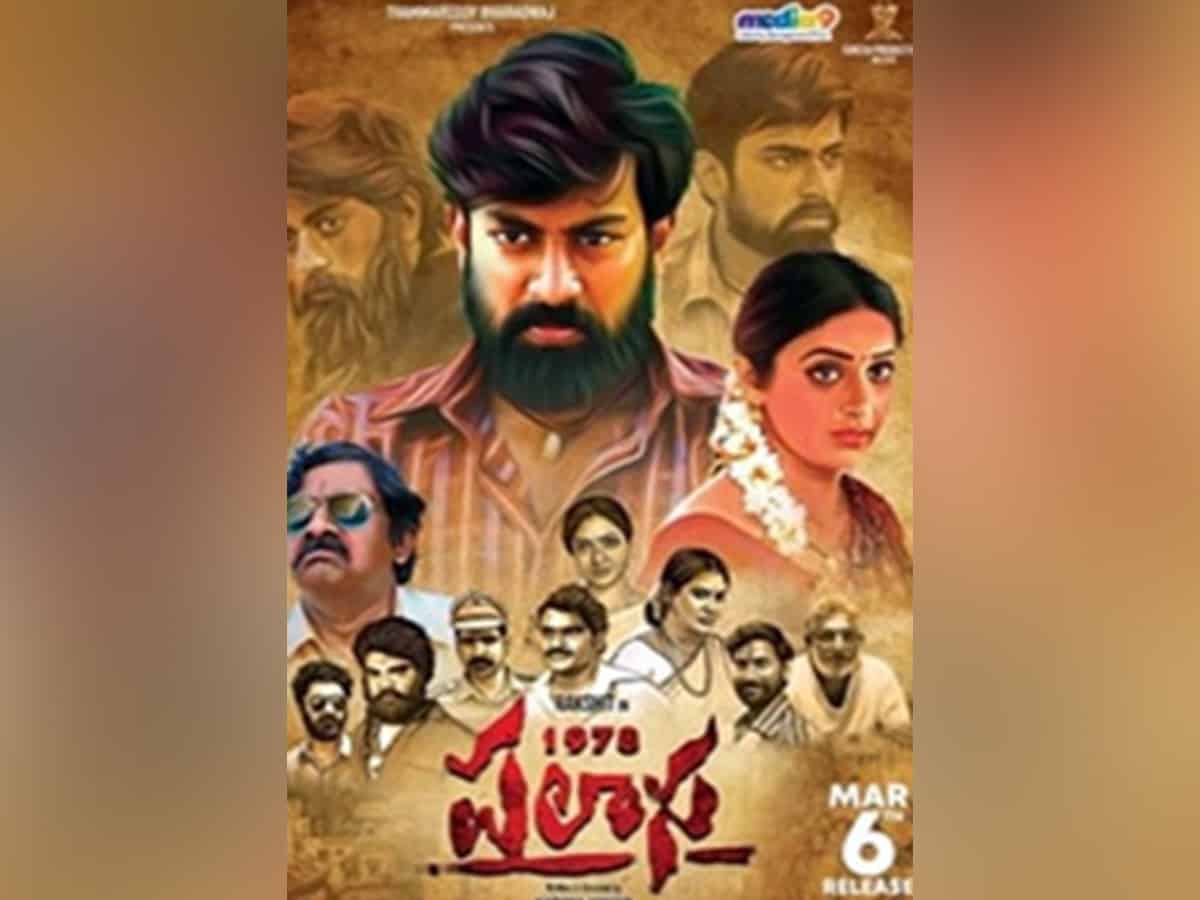2.75/5
2.24 hours | Drama - Thrille | 2020-03-07
Cast - Rakshit, Nakshatra, Thiruveer, Raghu Kunche and Others
Director - Karuna Kumar
Producer - Dhyan Atluri
Banner - Sudhas Media
Music - Raghu Kunche
Palasa 1978 has caught the attention of film lovers with its raw and realistic promos and also the buzz that it has been making among film circles. Allu Aravind offering a film and handing over a cheque to Karuna Kumar prior to its theatrical release has been a talking point.
What’s It About?
Palasa 1978 chronicles some important events in the life of Mohana Rao (Rakshit), a Dalit guy who is a very good singer. He revolts against the oppressive mentality of higher castes and his life takes unexpected turns as a result of it.
Performances:
Rakshit delivers an honest and sincere performance. The intensity in his eyes is real. He is ably aided by Thiruveer who plays his brother character. Raghu Kunche is impressive as the bad guy. Nakshatra didn’t have much role to play although she is the female lead. Her performance is decent. Principal supporting cast are pretty good with their part.
Technical Aspects:
Karuna Kumar picks up a subject that has to be dealt in arthouse style and he remained faithful to its theme. He has handled the film well. Action scenes are very raw and intense. He kept it as realistic as possible and has done a fabulous job as the dialogue writer. He has to be lauded for taking up such subject and dealing it in an unapologetic fashion.
Nakkileesu golusu song is good on screen. Background score is captivating. Cinematographer uses natural lighting to make it look very real. Production values are okay. But the producer should be lauded for backing this content.
Highlights:
Immersive first half
Realistic emotions
Cinematography
Drawbacks:
Overstretched second half
Pacing problems
Limited appeal
Analysis:
Films about social hierarchy and the oppression of scheduled castes are not new to silver screen. They were addressed before and even mainstream cinema has explored the theme to an extent. Rangasthalam, for instance, also has similar theme and has worked tremendously well at the box office. What separates Palasa 1978 from those films is its realistic approach and the way it brings reality on screen in an unapologetic manner.
Using authentic Srikakulam dialect is one of its winning elements. The director takes us on a trip to Palasa, a village in Srikakulam district in Northern Andhra Pradesh. It is almost like witnessing the life of Palasa people through a window. Caste Discrimination is not as severe as it used to be, which is why the director uses nineteen eighties as the backdrop for the film. He shows how manipulative and power hungry the upper castes were.
Cashew nuts business in Palasa also is showcased in the film to show how the Dalits were used as labourers while the upper caste showcars made fortunes out of it. First half of the film is very engrossing with many high points. The drama gets thicker and draws our full attention as the story moves forward. However, it nosedives post intermission with predictable scenes and lazily paced sequences.
The cop character seems forced until the intentions of the director are out. Climax gets preachy as the director suddenly tries to give message about the ideologies of Ambedkar. This is not a climax that many would be hoping for. Palasa has its moments despite some shortcomings. It is not everybody’s cup of tea, but will appeal to a section of audience.
 Gulte Movie News And Politics
Gulte Movie News And Politics

















